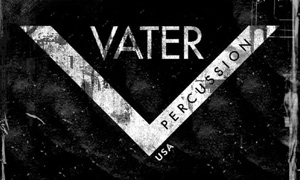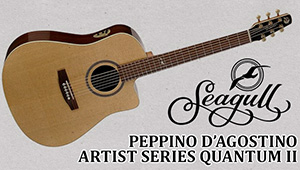 Eldar Djangirov
Eldar Djangirov

The New York Times described the New York-based pianist Eldar Djangirov as “a blend of musical intelligence, organizational savvy, enthusiasm and prowess that was all the more impressive for seeming so casual…an ebullient impressionist.” Dave Brubeck praised him as “a genius beyond most young people I’ve heard.” Downbeat magazine stated that “his command of his instrument is beyond staggering.” Born in 1987, Eldar came to the U.S. from the former Soviet Union when he was ten. Among his first performances were in his hometown of Kansas City. He quickly then moved up the ranks and was featured on the NPR Marian McPartland’s Piano Jazz show at the age of twelve. Eldar has appeared at numerous major jazz festivals around the world and has toured extensively throughout North America, Europe and Asia. He has performed at venues ranging from Hollywood Bowl to Carnegie Hall and has played at the most notable jazz venues across the world. In addition, he has also played with world renowned symphony orchestras such as NHK Symphony Orchestra, Russian National Orchestra, and San Diego Symphony Orchestra.
Eldar took a few minutes to share a little of his background and some of his thoughts with us. Enjoy.
SJ: Tell me a little about your early years and how it was for you growing up at home in Kansas City.
My mother was a classical piano teacher and I must say she was one of the finest classical piano teachers that I’ve come in contact with. And there was a lot of information she gave me early on that has guided my path musically and set up certain priorities and certain abilities. That’s really how I started. To be honest, I don’t think I had a “wow” moment when I knew that music would be my life’s pursuit because I don’t feel I really chose music consciously, because for whatever reason the series of events that led me to music were circumstantial. I remember as a teenager feeling good, as people sort of referred to me as “that’s the guy that plays piano” so to me it was something. But I really don’t remember having a moment where I didn’t know how to play it.
SJ: Did your parents have to twist your arm to practice?
Early on, certainly. As a young kid, you might not have the most focus, but to be honest, I really don’t remember all that much from when I was a kid. But my mother certainly encouraged it from a point of view of general education, and as an activity to keep my mind occupied. As I got older, music became such a huge part of my identity. I think the closer an artist can get to a point where the music reflects your character, and the way you see the world around you and the way the world moves, the closer the music can get to your character in a good way.
SJ: Tell me a little about your “Breakthrough” Record.
The record has a standard trio that I’ve been working with for five years. It was just a joy to make this record and it reflects something that’s positive. It reflects something that’s closest to what I hear in my mind musically, and it reflects not only my growth and development but a certain particular sound, a certain identifiable sound that the record carries…not only from a group dynamic, but from an individual dynamic…like the way the piano exists and functions in a band.
“Breakthrough” is a certain continuation of my “Virtue” record. I don’t want to say that “Breakthrough” is a better version…it is a continuation of an individual concept and I think that anybody that listens to “Breakthrough” will hear the continuation from the “Virtue” record. Actually, there is one tune called “Point of View Redux” that also appears on “Virtue,” but called “Point of View.” Michael Brecker played on that track. When he passed away, I felt like I wanted to do some sort of note acknowledging his passing. And the thing is, I didn’t want to write a tune for him because I feel like there was something else that I could do that was perhaps a little bit more connected and the thing that made sense to me was to do a “redux” – a re-arrangement I guess – and a trio version of that same tune we recorded eight years prior. In fact, there is an in-studio video on YouTube that is the exact match of the entire take that is on the record. It’s generated quite a lot of traffic on the Internet and I’m thankful for it.”
That’s why I’m proud of it because there are certain stylistic aspects that make the record very individual. And it builds from seemingly simple sources like even just the sound of the piano. That’s one of things that I enjoy about my favorite pianists. My favorite pianists have a recognizable attack on the instrument. With just a few notes you can recognize the piano players that I enjoy. By the sheer amount of time one spends with an instrument, these individual aspects start to come afloat. It’s not contrived. It simply becomes what it is.
I actually made a classical record this year along with “Breakthrough” and it’s called “Bach, Brahms, Prokofiev” and it’s the first classical record that I’ve made. I’ve always enjoyed classical music. I’ve always studied it since I was a kid but never had a chance to record it, or had a desire to record it until recently.
SJ: How do you differentiate between your Classical vs. Jazz music efforts?
Well, one feeds the other, and it has a lot to do with the way you “phrase.” It’s one word, but it’s a very extensive study and extensive perception of how a musician phrases the music. Different musical environments will demand variations of phrases. The phrasing is how you play around with the beat. Phrasing is how you choose dynamics. The phrasing is the quality of the musicians sense of time, the assurance of time, the confidence of time. The phrasing is in the accents that you put in the music. Different music in different compositions command different phrasing. So, at its core, what it comes down to is the more you’re able to phrase different aspects of music, the richer the playing will ultimately become. Kind of like a good public speaker. A good public speaker will be able to convey ideas with a certain clarity, with pauses made for effect. So music is no different. Or a comedian. If a comedian says a joke and the timing is off, the joke no longer is funny. It’s completely the same of music.
SJ: Who were some of your early influences?
Oscar Peterson was the first piano player that I fell in love with. I love how he speaks. I love how he accents. And, of course, I love his facility on the piano. Chick Corea is someone I admire as well. Bill Evans was another piano player I enjoyed as a kid. And, of course, Bud Powell. Everybody is inspired by their heroes. But the end goal is when somebody comes up with a certain style and they stick to it and that’s them. That’s what makes me happy.
SJ: Do you think you can actually teach improvisation?
I think anyone can learn how to improvise. It’s almost like saying a question “can somebody learn a second language?” It’s totally possible. Jazz has a certain vocabulary that many musicians are familiar with. They come from certain familiar sources and those pieces of vocabulary come together in each musician and then the musician will expand the vocabulary for his own use and he will introduce certain “mannerisms” and just general “isms” that are individual to that particular player. So that’s the reason the language can be shared. The language has rhythmic aspects that will be mutual, plus melodic and harmonic aspects. Once those things are in place, music is not much different than speaking a language. There are things that can be pretty…that can be clever, that can be sad, that can be happy, that can be humorous. Musicians that understand the language can connect to those expressions easily.
SJ: How do you feel about Jam Sessions?
There are a lot of people that don’t go to jam sessions…even some well-known artists who might be, for whatever reason, reluctant to do it. I’ve always participated in jam sessions since I was a kid because I like the interaction and it forces you into an seemingly uncomfortable situation. It’s actually very comfortable when the musicians are good. In fact, last night I went to a jam session here in Philly because I wanted to socialize with musicians and I wanted to hear the music.
Music is so social by nature and one of the things that I’ve always found is that whenever a group comes together and when they make good music together, 9 out of 10 times they are going to be friends. It’s very rare to find two musicians, or three musicians if it’s a trio, making good music together and they’re not close to each other. And I mean close can simply be the points of view that are very similar. It’s the most basic feeling of how somebody interprets and perceives your rhythm. It begins there…how your sense of time is aligned for the other person. It’s the first thing that will develop and determine whether musicians are going to continue making music. It’s all very cool…and, in a sense, spiritual.
SJ: How do you look back on your prior work?
Oh, I totally accept it for what it was at the time. Part of the growth process is getting to the point where you are happy with what you were doing. And I think that’s important. Certainly for me, the latest work that I feel like I do is personally my favorite. The latest really tends to represent where I’m at musically. To me, Tom, I’m just happy to be making music that people enjoy, and I feel that at this point, the music that I make, I have to be proud of it. So the output that comes out of it is a result of tedious preparation from the beginning stages of writing, to arranging, to rehearsing, to practicing, to getting in the studio, to getting to take that matters to me the most. It’s not like when I’m in the studio someone’s over my shoulder saying “oh, that take was fine” or “you should be happy.” I don’t stop until I’m completely happy with the product in the studio.





